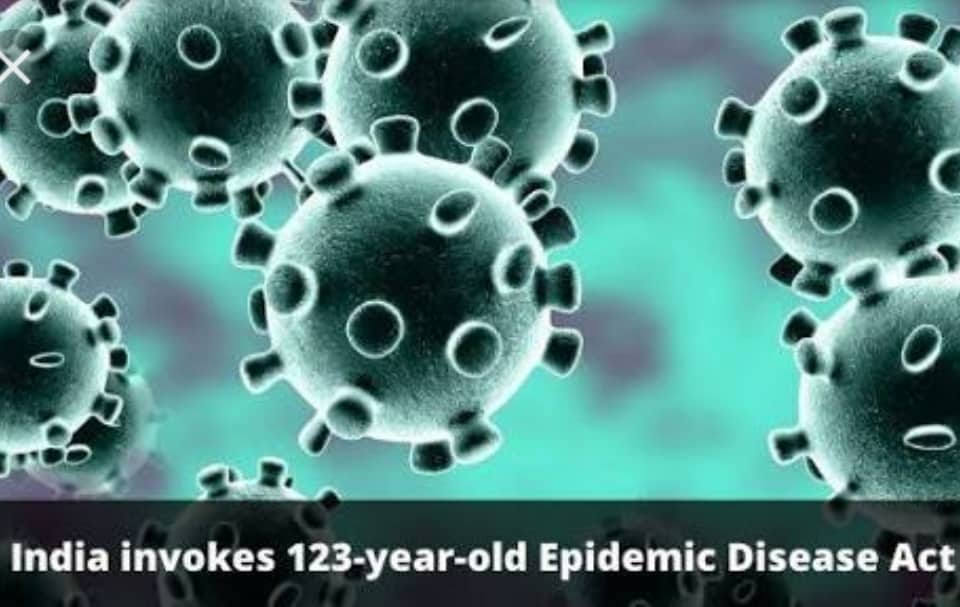On 22nd April, 2020, the central government, after the approval of Union Cabinet passed The Epidemic Disease (Amendment) Ordinance, 2020 which was later approved by President for the protection of health workers and healthcare service personnel who are the most critical service provider during this hazardous situation of the country because of COVID-19 pandemic. This comes after several incidents involving violence towards those on the frontline of the country’s coronavirus response.
Doctors, nurses and community health workers are spat on, stoned and beaten with sticks in dozens of seemingly daily incidents reported from across the country since India went under national lockdown a month ago on 24 March. Under the new law those who assault health workers will face a jail term ranging from three months to five years, and a fine of RS 50,000 to RS 2,00,000. If the attack results in serious injury, the maximum jail sentence rises to seven years and the fine of RS 1,00,000 to RS 5,00,000.
The epidemic disease (Amendment) Ordinance, 2020 defines “Act of violence” as harassment which affect the living or working condition of the any health care personnel and any act which prevents him or her to meet their duties. Any harm, injury, hurt, intimidation, or danger to the life of such healthcare personnel either with within the premises of clinical establishment or otherwise; or any act which is a reason behind obstruction to such health care personnel in the discharging of his or her duties or loss or damages of any property or document associated with such health care personnel. The epidemic disease (Amendment) Ordinance, 2020 amends the section 3 of The epidemic disease Act, 1897 and includes the provision which prescribes the punishment for the wrongdoer.
Healthcare service personnel in this act include, Public and clinical healthcare workers such as doctors, nurses, paramedical workers and community health workers; Any other persons empowered under the Act to take measures to prevent the outbreak of the disease or spread; and any persons declared as such by the State Government, by notification in the Official Gazette.
The amendment makes such offence cognizable and non- bailable offence and cases registered under the Ordinance will be investigated by a police officer not below the rank of Inspector. The investigation must be completed within 30 days from the date of registration of the First Information Report and trial has got to be concluded within a period of 1 year, provided that the said period could also be extended, for reasons to be recorded in writing by the court, but not exceeding 6 months. The convicted person is also liable to pay such amount of compensation, as could also be prescribed by the court for causing hurt or grievous hurt to any heath care personnel and just in case of failure to do so, Those found to be damaging the private clinic or a vehicle belonging to a doctor will be asked to pay compensation amounting to twice the market value of the damaged property or assets such amount shall be recovered as an arrear of land revenue under the Revenue Recovery Act, 1890.
The inquiry or trial should be concluded within one year. If it’s not concluded within this period of time, the Judge must record the reasons for the delay and extend the period of time. However, the time period may not be extended for more than six months at a time. When prosecuting a person for causing grievous harm to a healthcare service personnel, the Court will presume that person is guilty of the offence, unless the contrary is proved.
There is a need of sensitizing the public to support healthcare workers, if not, India will truly lose it’s battle against the pandemic. The healthcare workers are our frontline soldiers in battling the spread of Covid-19. They put their own lives in danger so as to make sure safety of others. It is hoped that this Ordinance will have the impact of infusing confidence within the community of healthcare service personnel in order that they can still contribute to serving mankind through their noble professions within the extremely difficult circumstances being witnessed during this Covid-19 outbreak.

Author: Aditya Singh,
Intern at Lawportal
Email: adi12sh24@gmail.com
Author: Aditya Singh,
AMITY LAW SCHOOL,NOIDA / 2ND YEAR

